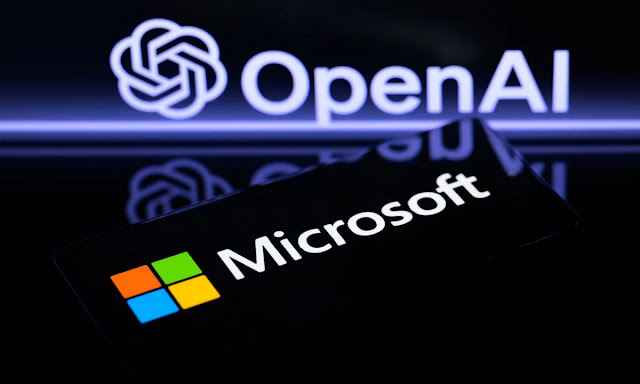Microsoft has joined a select group of tech companies subject to special regulatory oversight in Germany for potential market abuses. The Federal Cartel Office (FCO) confirmed on Monday that if deemed necessary, the software giant could face restrictions imposed by the competition authority.
This designation, which lasts for five years, is significant as it gives German regulators deeper insight into how Microsoft wields its influence through activities related to artificial intelligence (AI). However, the regulator has stated that no decision on "possible actions" has been made yet.
In recent years, Microsoft's influence over OpenAI has caught the attention of antitrust regulators. Microsoft’s acquisition of key OpenAI personnel, including CEO Sam Altman and other important staff, during a board dispute last fall further highlighted the close relationship between the two companies. While Altman remained at OpenAI, the incident showcased their proximity, and Microsoft secured a board observer seat at OpenAI (which it later vacated this summer). Despite the intricate structure of their arrangements, these collaborations have so far avoided regulatory intervention.
The FCO had already reviewed the partnership between the two companies and concluded last November that their relationship did not meet the criteria for a traditional merger review. However, with the regulator now empowered with more active and extensive oversight tools to regulate Big Tech, Microsoft’s dealings with OpenAI could come under closer scrutiny in the future in Germany.
In its press release, the FCO highlighted how Microsoft’s AI assistant Copilot is used across many parts of its ecosystem. It also noted how the company's strength in cloud computing helps it partner with "cutting-edge suppliers," enabling Microsoft to offer its AI models as services on Azure and integrate them into its own products.
In a statement, FCO President Andreas Mundt pointed to Microsoft’s long-standing dominance in software and emphasized: "Today, Microsoft’s ecosystem is stronger and more interconnected than ever before, with its increasing use of cloud and AI, critical technologies that have strengthened its position by developing its products and entering collaborations."
The FCO began investigating whether the tech company’s market power met the threshold for special abuse control in March 2023. The confirmation that Microsoft is now “of paramount importance for competition in the markets” unlocks a range of powers included in the 2021 update to Germany’s antitrust rulebook. These reforms aim to address concerns that the market power of Big Tech is hindering innovation and competition from rivals.
German law already applies to companies like Amazon, Apple, Google, and Meta, predating the European Union’s Digital Markets Act (DMA), which is also designed to curb the influence of Big Tech. However, the DMA imposes operational controls on designated platforms only, whereas the FCO has named Microsoft as a whole. This means German authorities have greater freedom to regulate Microsoft’s activities, including those related to AI, if they determine that the company's actions are harming competition.
The EU’s DMA draft was prepared before generative AI tools, like ChatGPT, became widely known. Microsoft is designated as a gatekeeper, but only two of its platforms—Windows OS and its social network LinkedIn—are directly regulated. This limits the European Commission's ability to intervene in Microsoft’s AI activities unless they specifically fall under those two "core platform services."
“Our decision applies to Microsoft as a whole, not just to individual services or products,” Mundt emphasized. “With our decision, we can prevent anti-competitive behavior that might not be covered by the DMA.”
Commenting on the FCO’s designation, Microsoft spokesperson Robin Koch stated: “We recognize our responsibility to support a healthy competitive environment and aim to be proactive, cooperative, and responsive in working with the Bundeskartellamt [FCO]. Microsoft is partnering with leading-edge companies in Germany, and we are committed to investing in the development of its digital economy.”















0 Comments